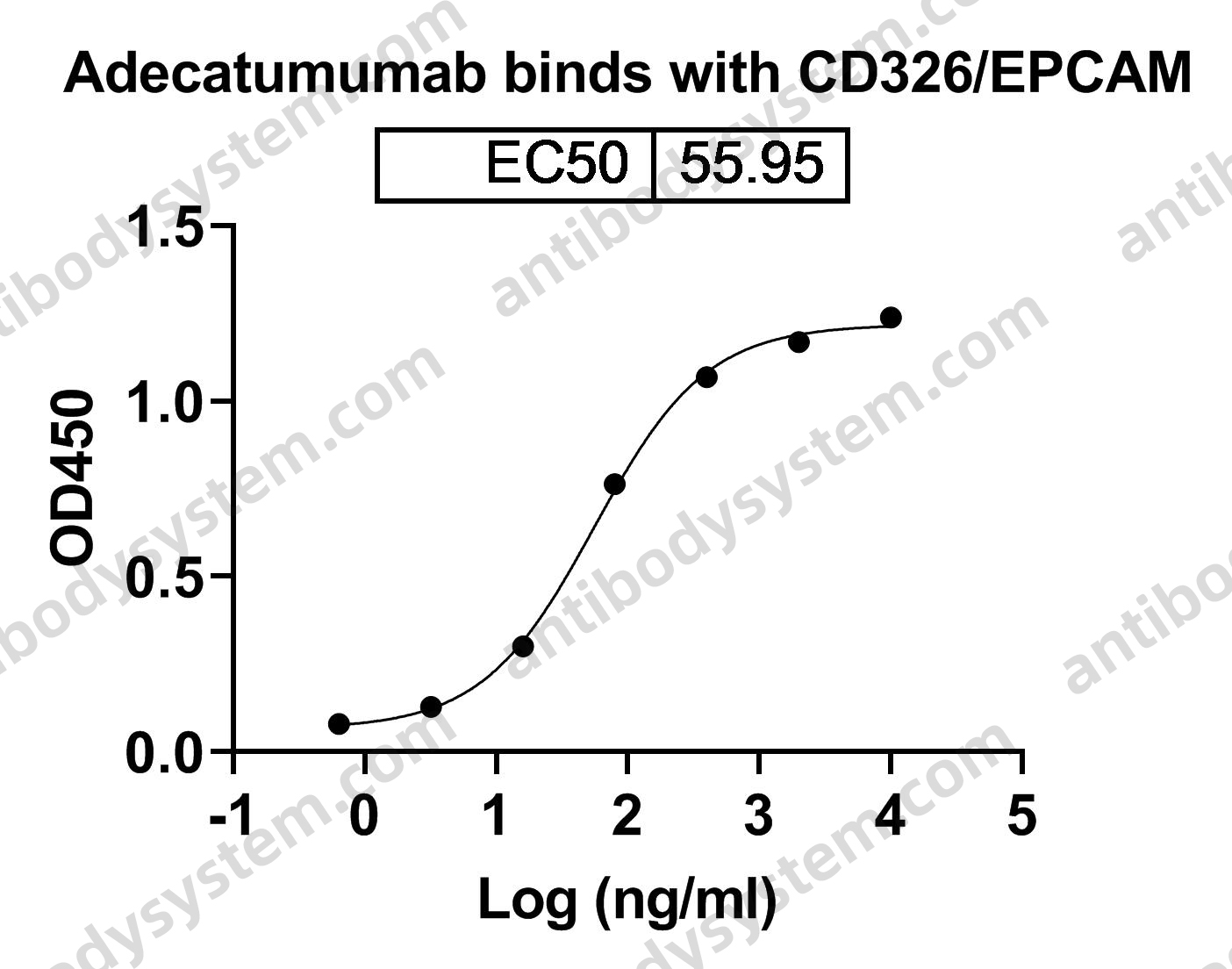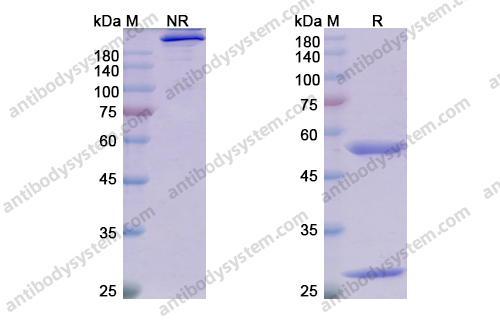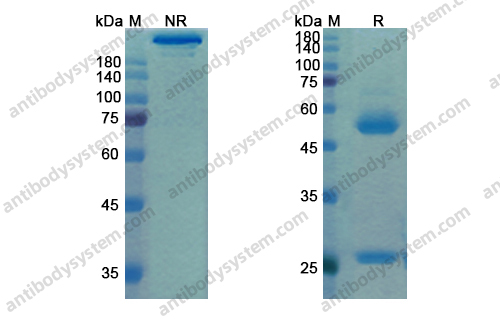Catalog No.
DHD17402
Expression system
Mammalian Cells
Species reactivity
Human
Host species
Human
Isotype
IgG1-nd
Clonality
Monoclonal
Target
Epithelial glycoprotein 314, hEGP314, Major gastrointestinal tumor-associated protein GA733-2, EGP314, TACSTD1, Adenocarcinoma-associated antigen, TROP1, EPCAM, Epithelial glycoprotein, KS 1/4 antigen, Tumor-associated calcium signal transducer 1, M4S1, CD326, Ep-CAM, EGP, Epithelial cell adhesion molecule, M1S2, KSA, Cell surface glycoprotein Trop-1, GA733-2, Epithelial cell surface antigen, MIC18
Concentration
1 mg/ml
Endotoxin level
Please contact with the lab for this information.
Purity
>95% as determined by SDS-PAGE.
Purification
Protein A/G purified from cell culture supernatant.
Accession
P16422
Applications
Research Grade Biosimilar
Form
Liquid
Storage buffer
0.01M PBS, pH 7.4.
Stability and Storage
Use a manual defrost freezer and avoid repeated freeze-thaw cycles. Store at 4°C short term (1-2 weeks). Store at -20°C 12 months. Store at -80°C long term.
Alternative Names
MT201, CAS: 503605-66-1
Clone ID
Adecatumumab
Antibody Based EpCAM Targeted Therapy of Cancer, Review and Update., PMID:29295696
Phase IB study of the EpCAM antibody adecatumumab combined with docetaxel in patients with EpCAM-positive relapsed or refractory advanced-stage breast cancer., PMID:22357251
Primary cervical carcinoma cell lines overexpress epithelial cell adhesion molecule (EpCAM) and are highly sensitive to immunotherapy with MT201, a fully human monoclonal anti-EpCAM antibody., PMID:21370592
Side-by-side analysis of five clinically tested anti-EpCAM monoclonal antibodies., PMID:21044305
High-grade, chemotherapy-resistant ovarian carcinomas overexpress epithelial cell adhesion molecule (EpCAM) and are highly sensitive to immunotherapy with MT201, a fully human monoclonal anti-EpCAM antibody., PMID:20870202
Gateways to clinical trials., PMID:20664824
Phase II study of the human anti-epithelial cell adhesion molecule antibody adecatumumab in prostate cancer patients with increasing serum levels of prostate-specific antigen after radical prostatectomy., PMID:20606402
Adecatumumab: an anti-EpCAM monoclonal antibody, from the bench to the bedside., PMID:20426706
Gateways to clinical trials., PMID:20140276
Overexpression of EpCAM in uterine serous papillary carcinoma: implications for EpCAM-specific immunotherapy with human monoclonal antibody adecatumumab (MT201)., PMID:20053761
An open-label, randomized phase II study of adecatumumab, a fully human anti-EpCAM antibody, as monotherapy in patients with metastatic breast cancer., PMID:19633042
Drug evaluation: adecatumumab, an engineered human anti-EpCAM antibody., PMID:17458174
Exchanging human Fcgamma1 with murine Fcgamma2a highly potentiates anti-tumor activity of anti-EpCAM antibody adecatumumab in a syngeneic mouse lung metastasis model., PMID:16937114
A phase I study with adecatumumab, a human antibody directed against epithelial cell adhesion molecule, in hormone refractory prostate cancer patients., PMID:16930989
High concentrations of therapeutic IgG1 antibodies are needed to compensate for inhibition of antibody-dependent cellular cytotoxicity by excess endogenous immunoglobulin G., PMID:16102830
Cellular and complement-dependent cytotoxicity of Ep-CAM-specific monoclonal antibody MT201 against breast cancer cell lines., PMID:15655555
Cytotoxic activity of novel human monoclonal antibody MT201 against primary ovarian tumor cells., PMID:12819960
In vitro and in vivo activity of MT201, a fully human monoclonal antibody for pancarcinoma treatment., PMID:12115595



